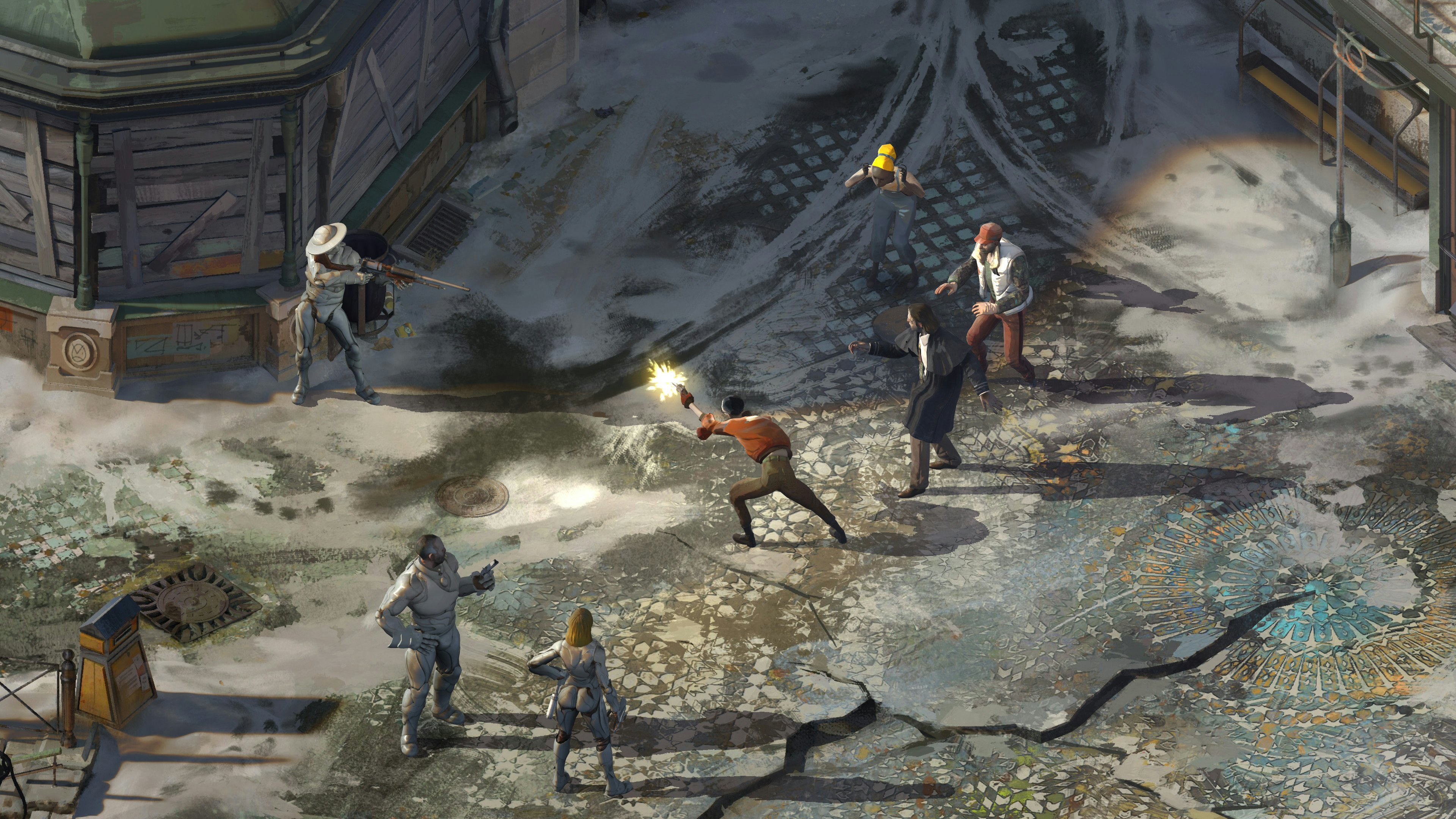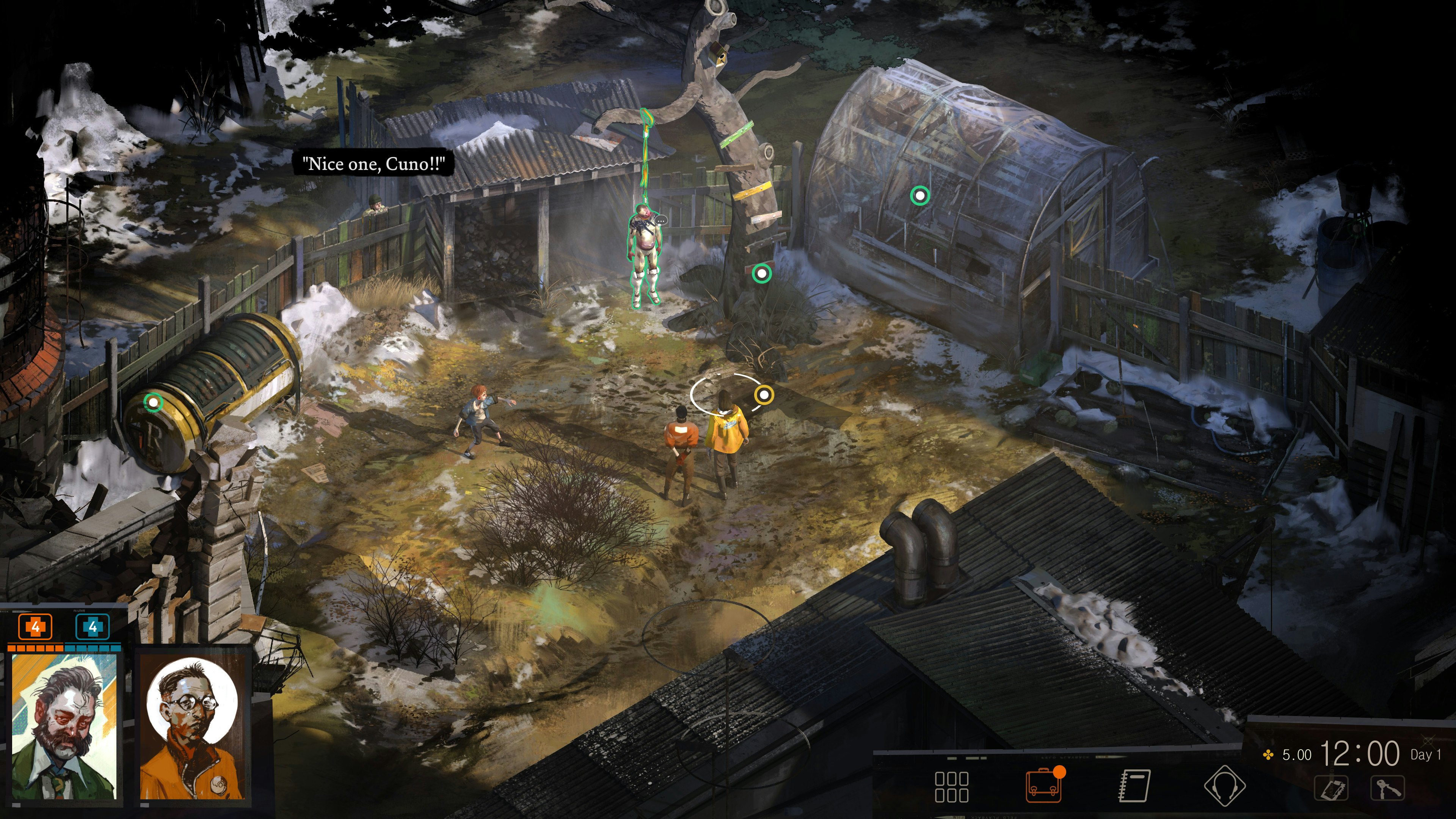
Freedom of choice has come to be seen as the hallmark of role-playing games. The role you’re playing is a blank slate, changing their opinions and abilities at a moment’s notice to suit the player. The choices you make in dialogue and gameplay are informed by your character only in so much as they depend on your chosen skill setup, and they define what that character will become mostly in terms of simplistic, good-or-bad morality. But there’s another kind of RPG, one where the role you’re playing matters, your character dragging behind them the weight of their history rather than serving as an empty canvas for your own decisions.
Disco Elysium’s Harry du Bois is just such a protagonist. At the game’s outset, he’s an alcoholic amnesiac cop, all things that complicate his relationship with the player and the people of Revachol, the setting of Disco Elysium, which passed its fifth anniversary on October 15. Combine that with the fact that the land itself is complex and inhospitable, and Disco Elysium is kind of a rough game to start. If you manage to survive just leaving Harry’s filthy hotel room — which is not a given, thanks to his extremely fragile state — you’re soon greeted by a couple of kids gawking at a corpse hanging from a tree and hurling homophobic slurs at you. Like Harry du Bois, Revachol is limited by its own history.
Those constraints are a conscious decision on the part of its developers. As much as Disco Elysium is an engrossing, challenging RPG, it’s also a piece of explicitly political art. Its world is defined by the turmoil of our actual past and Karl Marx’s theory of historical materialism, wherein economic forces are the engine of historical change rather than human will.
In the game’s world, the state of Revachol is a product of a communist revolution decades ago, which was followed by the invasion of a capitalist coalition determined to crush it. Those upheavals left Revachol fractured and economically depressed, just as du Bois’ alcoholism, misogynistic tendencies, and a particularly devastating breakup have left him the shattered man he is today.
It should come as no surprise that the members of ZA/UM, the now splintered developer behind Disco Elysium see themselves as an art collective rather than a typical video game studio. Writer Helen Hindpere remains, at least so far, the only person to ever thank the philosophers Karl Marx and Friedrich Engels onstage at The Game Awards, and Disco Elysium contains some of the most sophisticated political analysis ever seen in a video game.

On that front, it’s not a game that’s likely to be topped any time soon, least of all by ZA/UM. Not long after the launch of Disco Elysium, its developer was thrown into utter disarray. A sequel and spinoffs were announced, but before ZA/UM could breathe another word about them, personal and legal feuds tore the collective apart, with Disco Elysium’s most prominent creators mostly forced out of the company. ZA/UM and those individuals tell very different versions of why the split happened, as you might expect, grimly highlighting Disco Elysium’s themes of ideology and material conditions shaping the destinies of people and the world itself.
But ZA/UM’s breakup doesn’t necessarily mean the end of Disco Elysium’s legacy. By the game’s fifth anniversary, four different studios have been formed by former ZA/UM developers, each claiming to be working on the game’s true successor. Summer Eternal is the latest to be announced, and maybe the best one to keep your eye on, given the long, incredibly raw manifesto the studio released to announce its formation. From the ashes of the political/artistic collective ZA/UM, a series of splinter groups as fractured as Revachol itself have arisen.
Disco Elysium’s dour setup and the harshness of its world might make it seem like an unbearably pessimistic experience. With his partner, the beloved character Kim Kitsuragi, acting as his conscience, du Bois has the opportunity to rise above his own failures — at least if you’ve developed his skills in a way that allows it. Disco Elysium presents a world that’s broken beyond repair by its past, but never says that its future isn’t worth fighting for. The problems plaguing du Bois and Revachol alike can’t be erased, and many can’t even be overcome. But the fact that a man as troubled as du Bois in a place as hopeless as Revachol can help anyone at all feels like its own profound statement. Even if the world can’t transcend its history, sometimes its people can.







